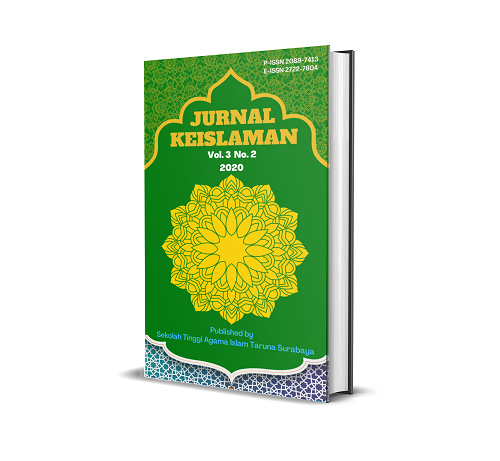Al-Qur’an dan Karakteristik Masyarakat Muslim
Abstract
Abstract: Muslim society is an open society that upholds universal values ​​of humanity and life, regardless of ethnic origin and religious differences. The Muslim community is a group of people who work together and live together based on the principles of the Qur'an and Hadith in their lives. Society in the view of Islam is a means to carry out Islamic teachings concerning life together. For this reason, society must become the basis for the framework of worldly life for the unity and cooperation of the people towards a human growth that embodies equality and justice. It is not called an Islamic society if it is always filled with feelings of revenge, which arise as a result of social injustice and mistreatment of some people towards others. This form of interaction is not recognized in Islam.The characteristics of a Muslim society are a society that has positive qualities and upholds the virtues taught by Islam. Each member of the community plays their respective roles to build a harmonious society by reflecting harmony. Peace and harmony are the main characteristics of an Islamic society.Copyright (c) 2020 Muhammad Hatta Diponegoro

This work is licensed under a Creative Commons Attribution-ShareAlike 4.0 International License.
Authors who publish with this journal agree to the following terms:
- Authors retain copyright and grant the journal right of first publication with the work simultaneously licensed under a Creative Commons Attribution-ShareAlike that allows others to share the work with an acknowledgement of the work's authorship and initial publication in this journal.
- Authors are able to enter into separate, additional contractual arrangements for the non-exclusive distribution of the journal's published version of the work (e.g., post it to an institutional repository or publish it in a book), with an acknowledgement of its initial publication in this journal.
- Authors are permitted and encouraged to post their work online (e.g., in institutional repositories or on their website) prior to and during the submission process, as it can lead to productive exchanges, as well as earlier and greater citation of published work (See The Effect of Open Access).






















